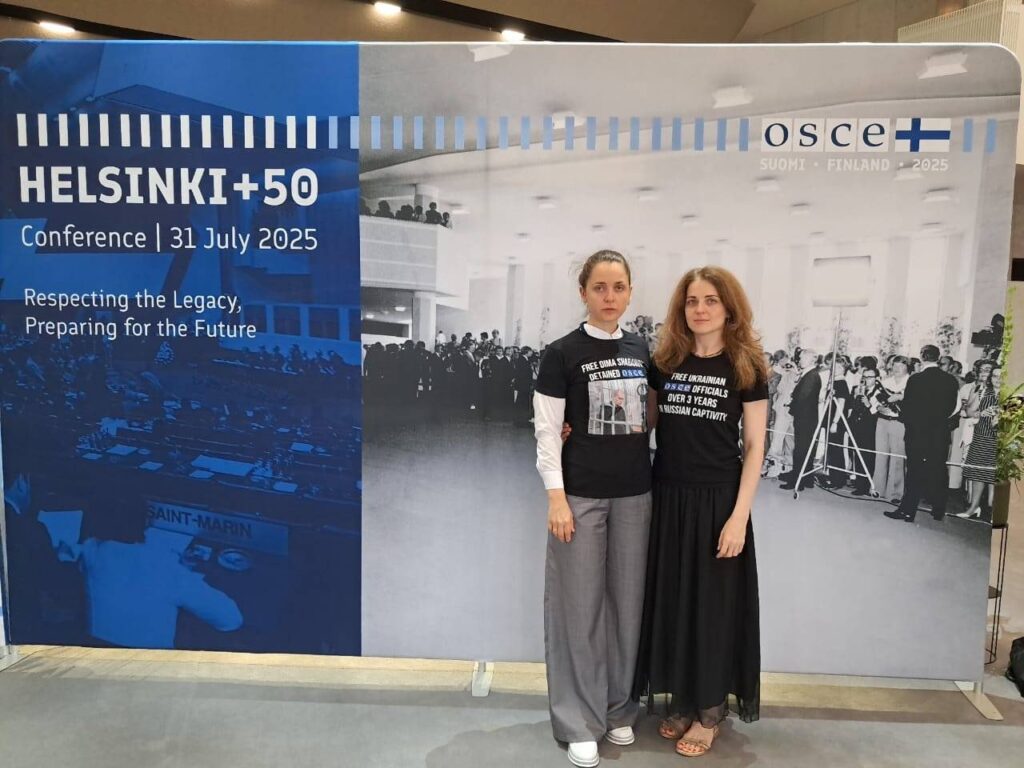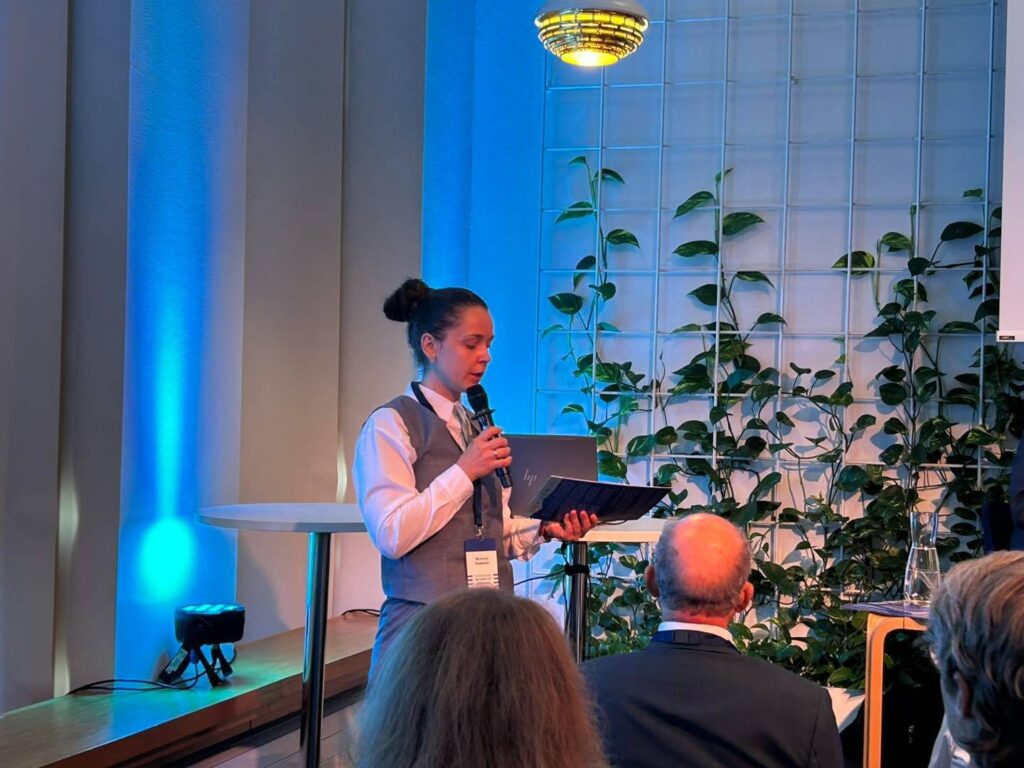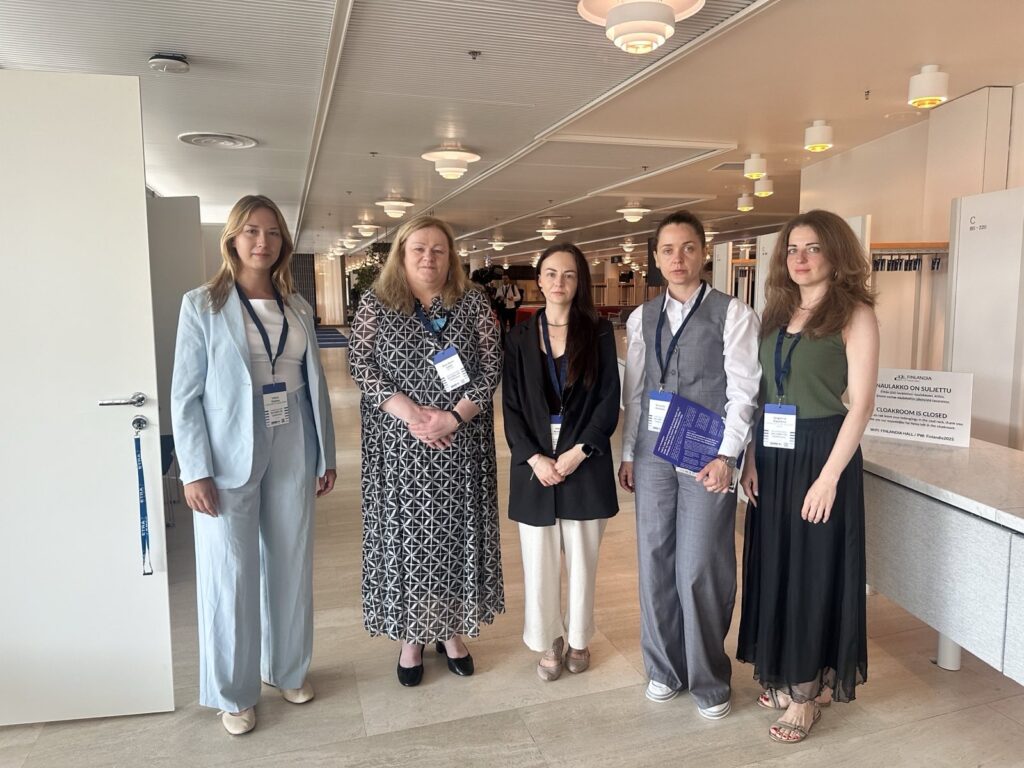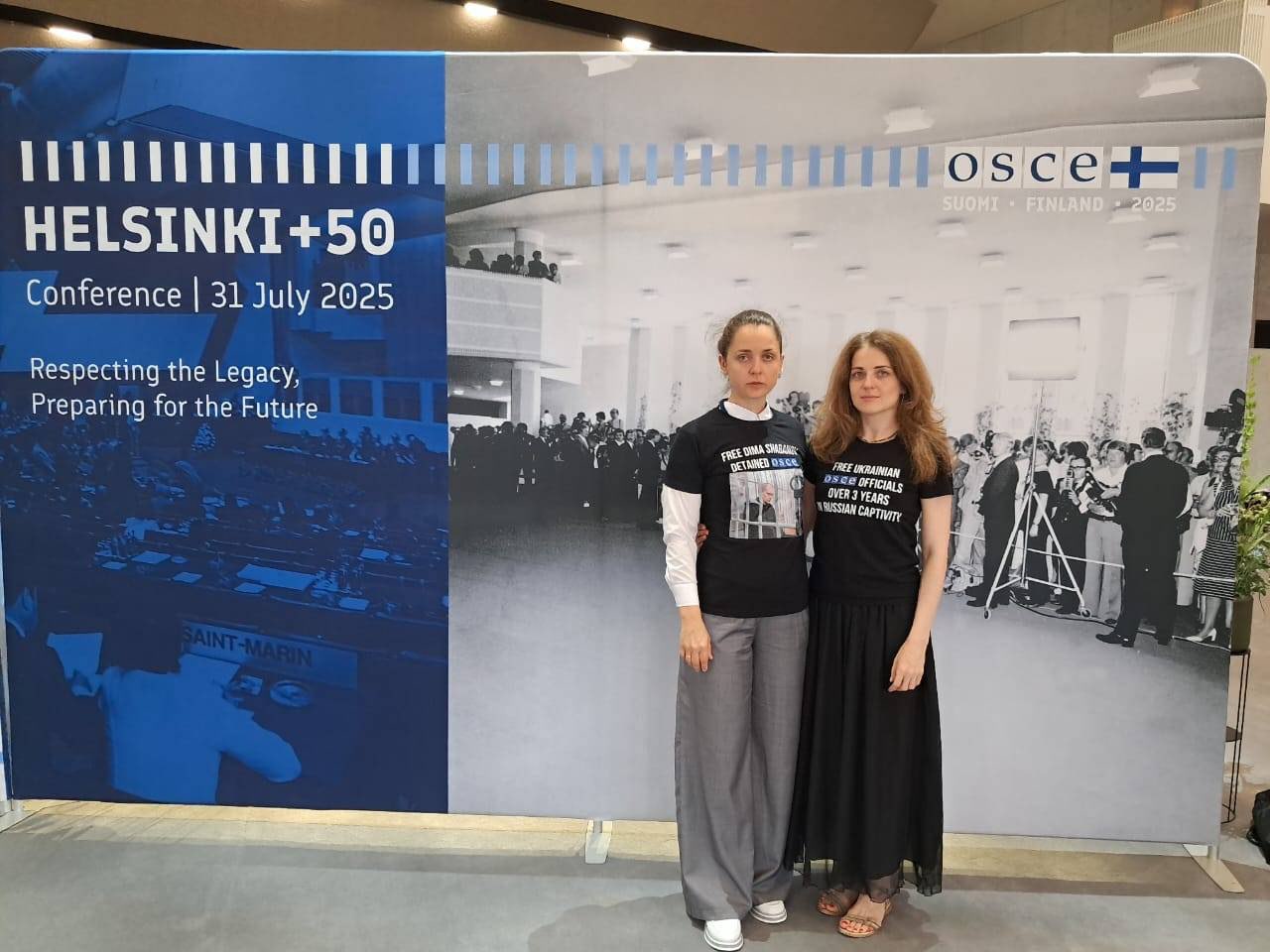Helsinki+50 and the Ongoing Detention of OSCE Staff: A Reflection
On July 31, the Helsinki+50 Conference took place, marking the 50th anniversary of the Helsinki Final Act – a foundational document for the OSCE.
For Margaryta Shabanova this occasion is yet another step in the ongoing struggle for the release of her husband, Dmytro Shabanov, along with Maksym Petrov and Vadym Golda – OSCE staff members unlawfully detained and prosecuted by the Russian Federation.
Margaryta attended the event together with Ievgeniia Kapalkina, an ULAG lawyer who represents the interests of Dmytro and Maksym’s families. They participated in several advocacy meetings, including bilateral conversations with the representatives of the United Kingdom, Ireland and Switzerland, organised by Human Rights Center ZMINA.

Shortly before the Helsinki+50 Conference we issued a joint CSO statement with a call to secure the immediate release of the OSCE staff members. Margaryta and Ievgeniia brought it to Helsinki and urged the stakeholders to take tangible actions. During the side event, organised by ZMINA and Media Initiative for Human Rights, Margaryta took the floor to convey the messages from the statement and call on the audience of more than a 100 people to prioritise this issue.
Through their actions, support of fellow NGOs and commitment of individual stakeholders, the release of Dmytro, Maksym and Vadym was definitely on the de-facto agenda of the event. The OSCE Secretary General Feridun H. Sinirlioğlu and Minister of Foreign Affairs of Ukraine Andrii Sybiha discussed them during the bilateral meeting, as well as mentioned in their individual statements and comments.
Yet, what remains lacking is clarity on the next steps to turn this commitment into reality. Throughout the years since the Ukrainian national OSCE staff members were captured in April 2022, their families have made immense efforts to draw the attention of OSCE officials, participating States, Ukrainian authorities, and the broader international community to their plight. Unfortunately, the response – especially in the beginning – while supportive, was sporadic and mostly reactive, with little substantial follow-up.
Without prejudice to any actions that may be taking place behind closed doors, families are not adequately informed about developments. This lack of communication fosters distrust and a perception of inaction, particularly given that more than three years have passed since their loved ones were taken.
For the families, every day without news is a day of agony. Mothers, children, spouses, and friends continue to live in fear for the safety and survival of those detained. Credible concerns persist that they are being held in conditions that may amount to cruel, inhuman, or degrading treatment, with little to no access to legal counsel, healthcare, or even confirmation of life.
This is not to say that they do not see such efforts when they are made. In fact, families and close ones, as well as their lawyers follow each and every bit of an update very closely. As Margaryta said in a comment for Stephanie Liechtenstein’s Associated Press article, “Every morning, I wake up hoping that today will be different -- that today I will hear that my Dima is free,” she said. “Painfully, days stretch on, and nothing changes. The waiting, the not knowing, the endless hope slowly turning into quiet despair.”

In March 2025, the OSCE Secretary General Feridun H. Sinirlioğlu visited Moscow and had a meeting with Russian Minister of Foreign Affairs Lavrov, during which the continuing deprivation of freedom of Dmytro Shabanov, Maksym Petrov and Vadym Golda was raised. Later that month it became known that Dmytro was deported to Omsk, and on July 31, 2025, it was reported that Maksym was deported to Chelyabinsk – thousands kilometers from the occupied Luhansk oblast.
The release of protected persons has been one of the greatest challenges of Russia’s war against Ukraine, demanding a systemic response grounded in international humanitarian law. The search for a comprehensive mechanism goes hand in hand with the urgent fight to secure the return of individual civilians in detention. Both tracks require strong, consistent diplomatic and legal action from states and international organisations.
The OSCE and its participating States could reasonably be expected to stand at the forefront of this effort. Yet, given the pace and approach over the past three years, families can hardly be blamed for their growing disillusionment in the organisation’s willingness and capacity to uphold the duty of care it owes to its own staff.
Another possible exchange of POWs – which may also include civilians – has recently been announced, offering a glimpse of hope but also underscoring the urgent need for concrete action. The OSCE and its participating States must engage directly with top Ukrainian officials to ensure that Maksym, Dmytro, and Vadym are on the return list, while ramping up pressure on Russia to release them.
There must be a clear and public commitment from specific stakeholders that securing their release is their personal undertaking. Without such ownership, there is a real risk the OSCE staff members will remain in limbo – a situation where concern is voiced by all, yet no one ensures action is taken, as responsibility is passed back and forth among the very actors who should be ensuring their release.
This is not only a matter of the lives of these three individuals, but also a crucial test of the OSCE’s credibility. With growing discussions about a possible ceasefire, the organisation is being considered as a potential option for a monitoring mechanism. When asked about this, its representatives stated that “any formal role would be mandated through a consensus decision by all 57 participating States” and that “we have the tools, the experience (notably through the now-closed Special Monitoring Mission to Ukraine) and the expertise to play a role in supporting peace.”

Such an ambition can only be taken seriously if the OSCE staff are released. Otherwise, how can a mechanism’s mandate be respected, its personnel regarded as protected, and its role effectively carried out? This question is relevant not only for the OSCE, but for any initiative that might be designed and deployed in Ukraine.
At the Helsinki+50 Conference, many called not only for reaffirming the principles of the Helsinki Final Act, but also for rethinking how to uphold them. A shift in approach, coupled with an even stronger and more effective pursuit to secure the release of Dmytro Shabanov, Maksym Petrov, and Vadym Golda – alongside a determined effort to free all unlawfully detained persons – is both the starting point and a prerequisite for achieving that goal.
